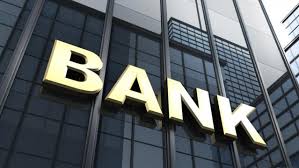Are you curious about the Nigerian banking system? Want to know more about the types of banks, services offered, and regulations governing the sector? Look no further! In this article, we will dive deep into the world of Nigerian banking, providing you with a well-rounded understanding of this vital industry.*
As a authority in the study of Nigerian banking system, with years of hands-on experience, I am here to share my insights and expertise. Throughout this article, I will provide you with real-life examples, thought-provoking questions, and current statistical data to engage and enlighten you. So let’s get started!
Introduction: Understanding Nigerian Banking
Nigerian banking is a dynamic and ever-evolving sector that plays a crucial role in the country’s economy. It encompasses a wide range of financial institutions, services, and regulations. Whether you’re an individual looking to open a bank account, a business owner seeking loans, or an investor exploring opportunities, understanding Nigerian banking is essential.
Types of Banks in Nigeria
Nigeria boasts a diverse banking landscape, with various types of banks catering to different needs. The Central Bank of Nigeria (CBN) acts as the regulatory authority overseeing these institutions. Here are the main types of banks you’ll encounter in Nigeria:
1. Commercial Banks: These are the most common banks in Nigeria, serving individuals, businesses, and government entities. They offer a wide range of services, including savings and current accounts, loans, mortgages, and investment opportunities.
2. Microfinance Banks: Designed to support micro, small, and medium-sized enterprises (MSMEs), microfinance banks provide financial services tailored to the needs of these businesses. They play a crucial role in promoting financial inclusion and economic growth.
3. Development Banks: These specialized banks focus on providing long-term financing for infrastructure projects, agriculture, and other sectors vital for Nigeria’s development. They collaborate with the government and international organizations to drive economic progress.
4. Merchant Banks: Merchant banks primarily serve corporate clients, offering specialized financial services such as advisory, underwriting, and project financing. They play a vital role in facilitating mergers, acquisitions, and capital market activities.
Services Offered by Nigerian Banks
Nigerian banks offer a wide array of services to meet the diverse financial needs of individuals and businesses. Here are some of the key services you can expect from Nigerian banks:
1. Deposit Accounts: Nigerian banks provide various types of deposit accounts, including savings, current, and fixed deposit accounts. These accounts allow individuals and businesses to securely store their funds while earning interest.
2. Loans and Credit Facilities: Whether you’re looking for a personal loan, a mortgage, or a business loan, Nigerian banks offer a range of credit facilities to meet your financial needs. These loans come with competitive interest rates and flexible repayment options.
3. Electronic Banking: Nigerian banks have embraced technology, offering electronic banking services such as internet banking, mobile banking, and ATM services. These convenient channels allow customers to perform transactions, check balances, and make payments anytime, anywhere.
4. Investment Opportunities: Nigerian banks provide investment products such as mutual funds, stocks, bonds, and treasury bills. These offerings allow individuals and businesses to grow their wealth and diversify their investment portfolios.
Regulations Governing Nigerian Banking
To ensure the stability and integrity of the Nigerian banking sector, various regulations and guidelines are in place. The Central Bank of Nigeria (CBN) plays a pivotal role in formulating and enforcing these regulations. Here are some key regulatory aspects you should be aware of:
1. Know Your Customer (KYC): Nigerian banks are required to implement robust KYC procedures to verify the identity and address of their customers. This helps prevent money laundering, fraud, and other illicit activities.
2. Capital Adequacy: Banks in Nigeria must maintain a minimum capital requirement to ensure they have sufficient funds to cover potential losses. This requirement helps safeguard depositors’ funds and maintain the stability of the banking system.
3. Risk Management: Nigerian banks are required to establish comprehensive risk management frameworks to identify, assess, and mitigate various risks, including credit risk, market risk, and operational risk. This ensures the safety and soundness of the banking sector.
4. Consumer Protection: The CBN has implemented regulations to protect the rights and interests of bank customers. These regulations cover areas such as fair treatment of customers, complaint resolution mechanisms, and transparency in fees and charges.
The Future of Nigerian Banking
Nigerian banking is poised for a bright future, driven by technological advancements, regulatory reforms, and a growing economy. The sector is embracing digital innovation, expanding financial inclusion, and fostering sustainable development. As Nigeria continues to position itself as a leading economy in Africa, the banking sector will play a pivotal role in supporting this growth.
In conclusion, Nigerian banking is a multifaceted industry that offers a wide range of services, caters to diverse needs, and operates under robust regulations. Whether you’re an individual seeking financial services or a business owner exploring banking solutions, understanding the Nigerian banking landscape is essential. Stay informed, leverage the available opportunities, and make informed financial decisions that will shape your future.
What are your thoughts on the Nigerian banking sector? Have you encountered any challenges or success stories? Share your experiences in the comments below! And remember, your financial journey starts with knowledge and understanding.*
*Ready to take control of your financial future? Click here to explore the best banking options for you or contact our experts for personalized advice.*
Sources:
1. Central Bank of Nigeria – [www.cbn.gov.ng](https://www.cbn.gov.ng)
2. Nigeria Deposit Insurance Corporation – [www.ndic.gov.ng](https://www.ndic.gov.ng)
3. Nigerian Stock Exchange – [www.nse.com.ng](https://www.nse.com.ng)
*Disclaimer: The information provided in this article is for informational purposes only and should not be considered as financial advice. Please consult with a qualified professional for personalized guidance tailored to your specific financial situation.


